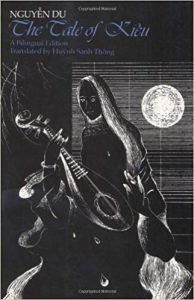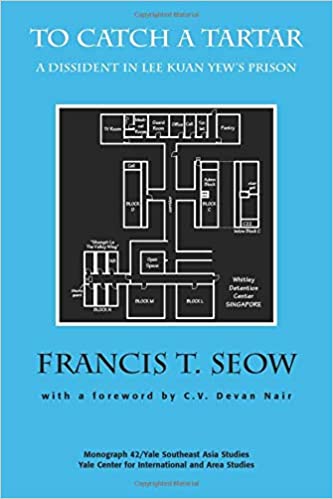Written by Nguyen Du (1765-1820), The Tale of Kieu: Truyen Kieu (Vietnamese Edition) (The Tale of Kieu) was produced during the social and political upheavals of the 19th century, and is now a cornerstone of Vietnamese literature. In Vietnam, Truyen Kieu has attained almost a Shakespearean status: according to news reports, children study it in schools while adults allude to it in daily conversations.
Huynh Sang Thong’s translation of this 3,254-line poetry is considered the finest and is accompanied by excellent notes that explain the Vietnamese phrasing of the original and which set the story in context. For those who do not understand the Vietnamese language, the translation and commentary will help shed some light on what many Vietnamese regard as their most important cultural statement.
The Tale of Kieu offers a fascinating glimpse into the Vietnamese mindset and sexual mores in a Confucian society. It is radical in the sense that the protagonist is a woman – the young and beautiful Kieu, who is in love with a scholar named Kim. Despite her physical and moral qualities (“A fragrant rose, she sparkled in full bloom,” ~ “But you’ve named me your bride – to serve her man, she must place chastity above all else.”), the future turned out to be a life-wrecking nightmare for Kieu.
The tragic theme that pervades this story illustrates the hopelessness of women in a Confucianist, male-dominated world. Early on in the story, Kieu has to choose between Kim, to whom she has pledged herself, and her family. Predictably, Kieu offers herself to be sold in marriage to raise money for her kith and kin (“As you must weigh and choose between your love and filial duty, which will turn the scale? She put aside all vows of love and troth – a child first pays the debts of birth and care.”).
Unmoved by Kieu’s sale into prostitution (the elderly “scholar” Kieu got married off to was in fact a brothel keeper – “She’ll bring at least three hundred liang, about what I have paid – net profit after that.”), the fates actively oppose her wishes by keeping her alive when she attempts suicide. Kieu laments her ill-treatment by a wicked world unopposed by Heaven – “I sinned in some past life and have to pay: I’ll pay as flowers must fade and jade must break.”
Halfway through, the story reaches a happy (and false) ending when Kieu becomes soul- and bed-mate with a free-spirited warlord, Tu Hai. All is well until another warlord, Lord Ho, instigates Kieu to persuade Tu Hai to lay down his sword and make peace with the emperor. As a result, Tu Hai is killed, and Kieu is married off to a tribal chief. She throws herself into a river, but fails to die yet again.
The ending? Without giving too much away – “… and over there was Kim her love of yore.”


